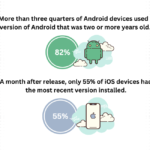How Mobile Apps are Transforming the Healthcare Industry is an exciting topic that showcases how technology is reshaping the way we approach health and wellness. With the proliferation of smartphones, healthcare is becoming more accessible, efficient, and personalized than ever before. Mobile applications are now integral tools that facilitate everything from appointment scheduling and telemedicine to medication tracking and health monitoring, making a significant impact on patient care and engagement.
This transformation is not only about convenience; it also enhances communication between patients and providers, empowers individuals to take charge of their health, and streamlines administrative processes. As we delve deeper into this subject, we will explore the various ways mobile apps are revolutionizing healthcare, the benefits they bring, and the challenges that lie ahead.
In today’s fast-paced world, the importance of effective communication cannot be overstated. Whether in our personal relationships, professional environments, or even casual encounters, the ability to convey thoughts clearly and listen actively is a skill that pays dividends. This article will explore the nuances of communication, its significance, and ways to enhance our ability to connect meaningfully with others.Effective communication is not merely about exchanging information; it is about understanding the emotion and intentions behind the information.
When we communicate, we have the opportunity to share our ideas, thoughts, and feelings. However, the way we express ourselves can drastically affect how our message is perceived. Non-verbal cues, tone of voice, and body language play crucial roles in the process. For instance, a friendly smile can enhance a warm greeting, while crossed arms might suggest defensiveness or discomfort.
Understanding these cues can help us become more effective communicators.One of the fundamental elements of effective communication is active listening. This means not only hearing the words spoken by others but also understanding the underlying messages and emotions. When we practice active listening, we show respect and consideration for the speaker, which fosters trust and openness. Techniques such as paraphrasing what the speaker has said, asking clarifying questions, and providing feedback can significantly enhance the listening experience.
This, in turn, encourages a more open dialogue where both parties feel valued and heard.Moreover, emotional intelligence is a vital component of communication. It refers to the ability to recognize and manage our own emotions, as well as the emotions of others. By being emotionally intelligent, we can maintain self-control during conversations, especially in difficult or heated discussions. This ability allows us to respond thoughtfully rather than react impulsively, which is crucial in maintaining healthy relationships.
Recognizing when emotions run high can also provide an opportunity to pause and regroup, leading to a more productive conversation.In professional settings, communication takes on even greater importance. It is the cornerstone of teamwork, collaboration, and leadership. Clear communication within teams can help prevent misunderstandings, reduce conflicts, and enhance productivity. Leaders who communicate effectively can inspire and motivate their teams, creating a positive work environment.
They are often seen as approachable and trustworthy, which encourages team members to share ideas and concerns freely.To improve communication in the workplace, organizations can promote an open-door policy, encourage regular feedback, and provide training in communication skills. Workshops that focus on interpersonal skills, public speaking, and conflict resolution can be beneficial. Additionally, utilizing technology tools such as video conferencing, instant messaging, and collaborative platforms can enhance communication, especially in remote work settings.
These tools help bridge the gap between team members, regardless of their physical location, allowing for real-time interaction and collaboration.However, communication is not without its challenges. Cultural differences, language barriers, and differing communication styles can complicate interactions. In an increasingly globalized world, being aware of these differences is essential. For example, some cultures prioritize direct communication, while others may favor a more indirect approach.

Being sensitive to these nuances can help prevent misunderstandings and foster a more inclusive environment.Furthermore, digital communication has transformed the way we interact. While emails, texts, and social media provide convenient ways to connect, they can also lead to misinterpretations. Without the benefit of non-verbal cues, messages can sometimes come across as harsh or insincere. Therefore, it is crucial to be mindful of our tone and word choice when communicating digitally.
Taking the time to proofread messages and consider how they may be perceived can help avoid unnecessary conflicts.Another significant aspect of communication is feedback. Providing constructive feedback is essential for growth and improvement, whether in personal relationships or professional settings. It is important to deliver feedback in a manner that is respectful and supportive, focusing on specific behaviors rather than personal traits.
Likewise, being open to receiving feedback is equally important. Embracing feedback as an opportunity for growth can enhance our communication skills and strengthen our relationships.In conclusion, effective communication is a multifaceted skill that requires practice and mindfulness. By honing our ability to listen actively, express ourselves clearly, and understand the emotions involved in conversations, we can build stronger connections with others.
Whether in our personal lives or professional endeavors, effective communication paves the way for collaboration, understanding, and success. As we navigate our daily interactions, let us strive to communicate thoughtfully, ensuring that our messages resonate with clarity and compassion. By doing so, we contribute to a more connected and harmonious world.



